Publications
Articles, publications, books, tools and multimedia features from the U.S. Institute of Peace provide the latest news, analysis, research findings, practitioner guides and reports, all related to the conflict zones and issues that are at the center of the Institute’s work to prevent and reduce violent conflict.
Question And Answer
Amid a Changing Global Order, NATO Looks East
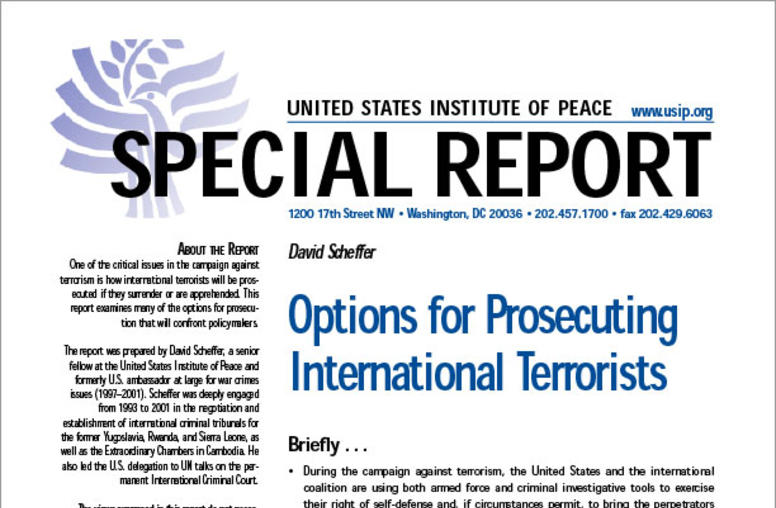
Options for Prosecuting International Terrorists
Summary During the campaign against terrorism, the United States and the international coalition are using both armed force and criminal investigative tools to exercise their right of self-defense and, if circumstances permit, to bring the perpetrators to justice. The latter goal has been instrumental in building the international coalition against terrorism. Grounds for criminal prosecution of the al Qaeda terrorist suspects include outstanding U.S. indictments, UN Security Council...
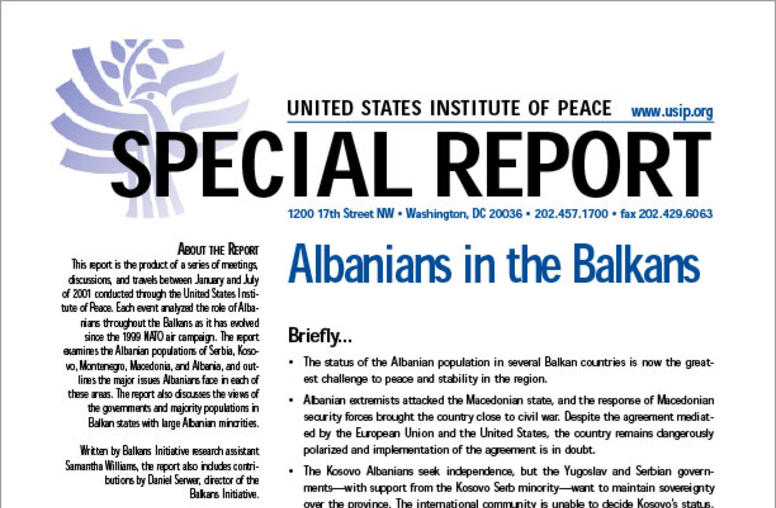
Albanians in the Balkans
Summary The status of the Albanian population in several Balkan countries is now the greatest challenge to peace and stability in the region. Albanian extremists attacked the Macedonian state, and the response of Macedonian security forces brought the country close to civil war. Despite the agreement mediated by the European Union and the United States, the country remains dangerously polarized and implementation of the agreement is in doubt. The Kosovo Albanians seek independence...
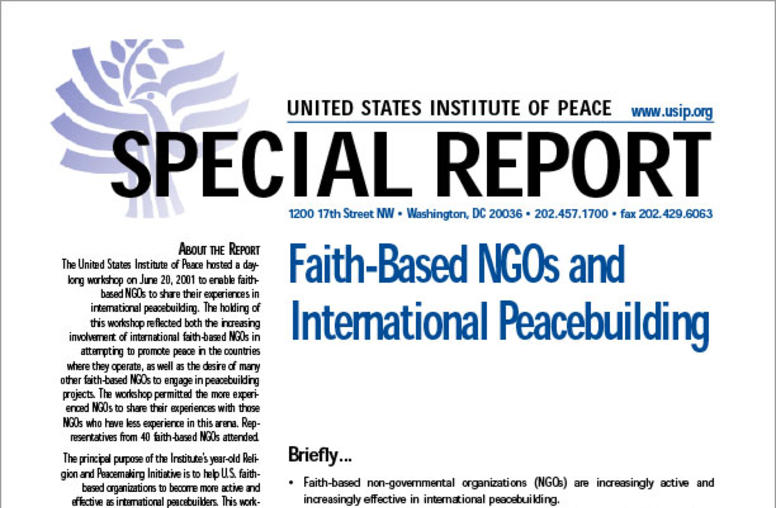
Faith-Based NGOs and International Peacebuilding
Summary Faith-based non-governmental organizations (NGOs) are increasingly active and increasingly effective in international peacebuilding. Faith-based organizations have a special role to play in zones of religious conflict, but their peacebuilding programs do not need to be confined to addressing religious conflict.
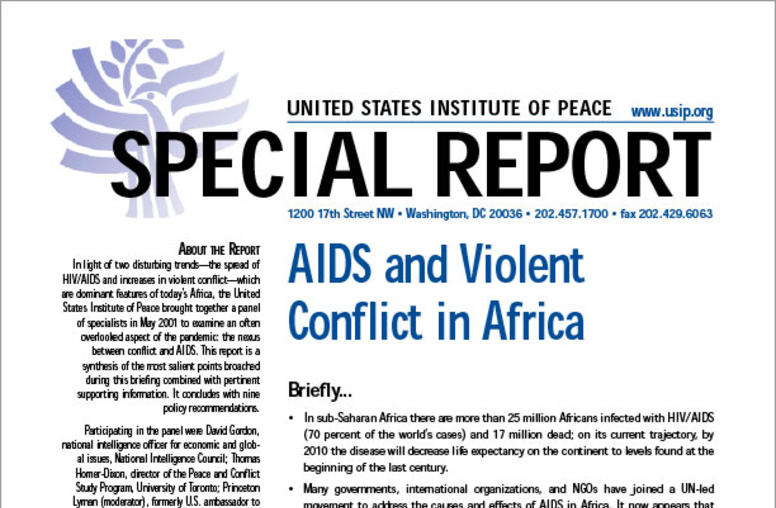
AIDS and Violent Conflict in Africa
In light of two disturbing trends--the spread of HIV/AIDS and increases in violent conflict--which are dominant features of today's Africa, the United States Institute of Peace brought together a panel of specialists in May 2001 to examine an often overlooked aspect of the pandemic: the nexus between conflict and AIDS. This report is a synthesis of the most salient points broached during this briefing combined with pertinent supporting information. It concludes with nine policy recommendation...
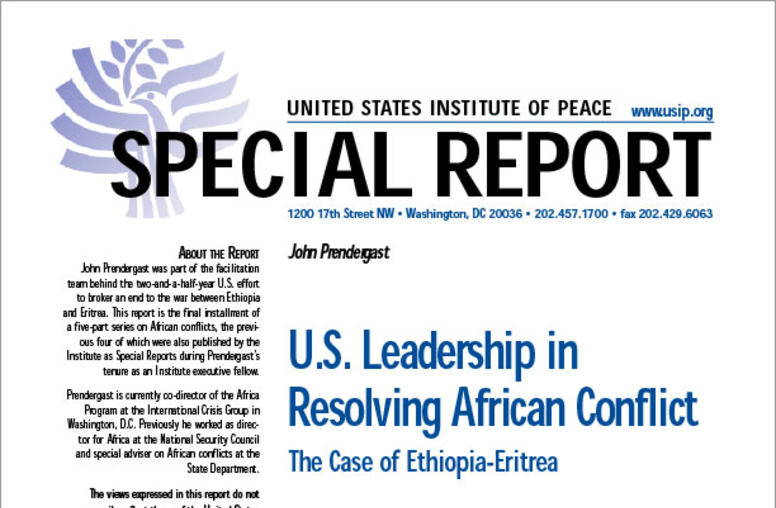
U.S. Leadership in Resolving African Conflict: The Case of Ethiopia-Eritrea
John Prendergast was part of the facilitation team behind the two-and-a-half-year U.S. effort to broker an end to the war between Ethiopia and Eritrea. This report is the final installment of a five-part series on African conflicts, the previous four of which were also published by the Institute as Special Reports during Prendergast's tenure as an Institute executive fellow.
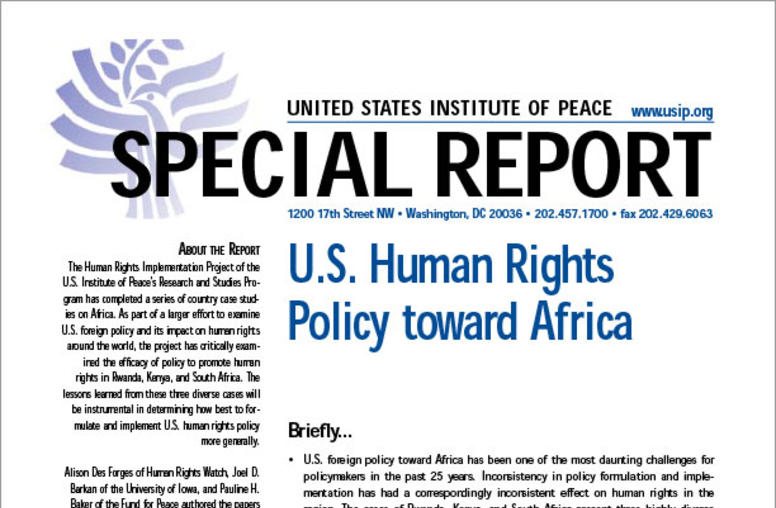
U.S. Human Rights Policy toward Africa
The Human Rights Implementation Project of the U.S. Institute of Peace's Research and Studies Program has completed a series of country case studies on Africa. As part of a larger effort to examine U.S. foreign policy and its impact on human rights around the world, the project has critically examined the efficacy of policy to promote human rights in Rwanda, Kenya, and South Africa. The lessons learned from these three diverse cases will be instrumental in determining how best to formulate an...
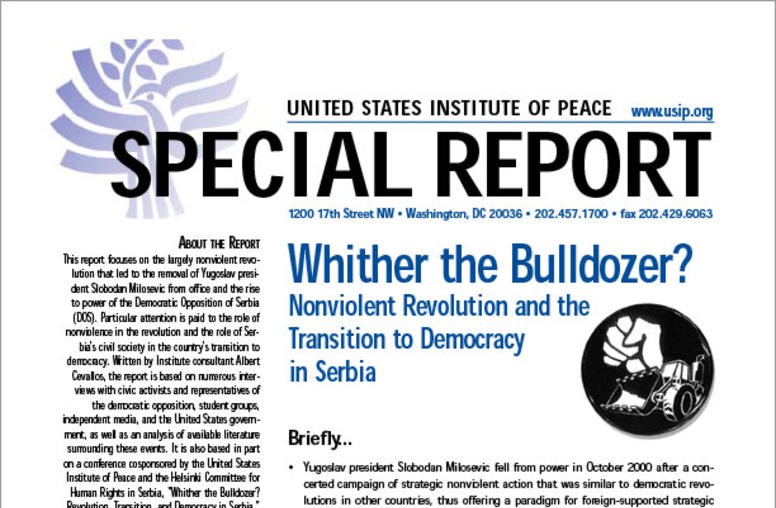
Whither the Bulldozer?: Nonviolent Revolution and the Transition to Democracy in Serbia
Yugoslav president Slobodan Milosevic fell from power in October 2000 after a concerted campaign of strategic nonviolent action that was similar to democratic revolutions in other countries, thus offering a paradigm for foreign-supported strategic nonviolent action against other autocratic regimes.
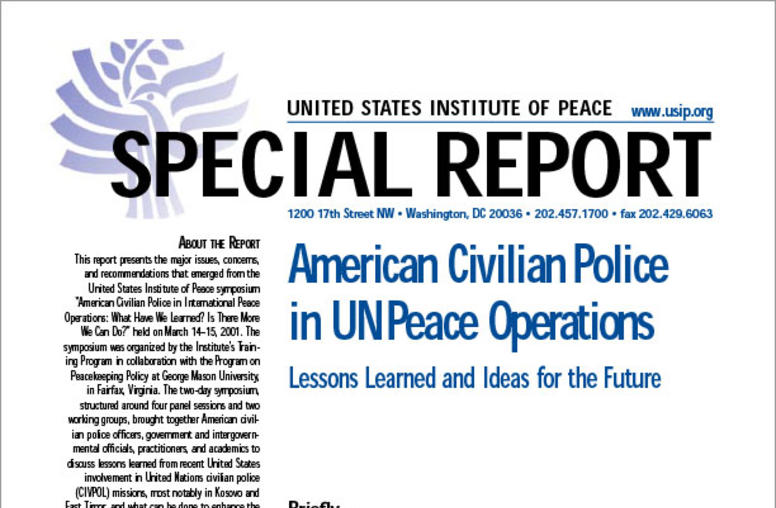
American Civilian Police in UN Peace Operations: Lessons Learned and Ideas for the Future
Summary With the advent of the United Nations missions in Kosovo and East Timor, civilian police (CIVPOL) mandates expanded in scope and scale to assume the full spectrum of executive law enforcement authority, along with the crucial peacebuilding tasks of creating indigenous law enforcement and criminal justice systems based on democratic values and institutions. The Clinton administration's Presidential Decision Directive (PDD) 71 sought to address the "public security gap," creat...
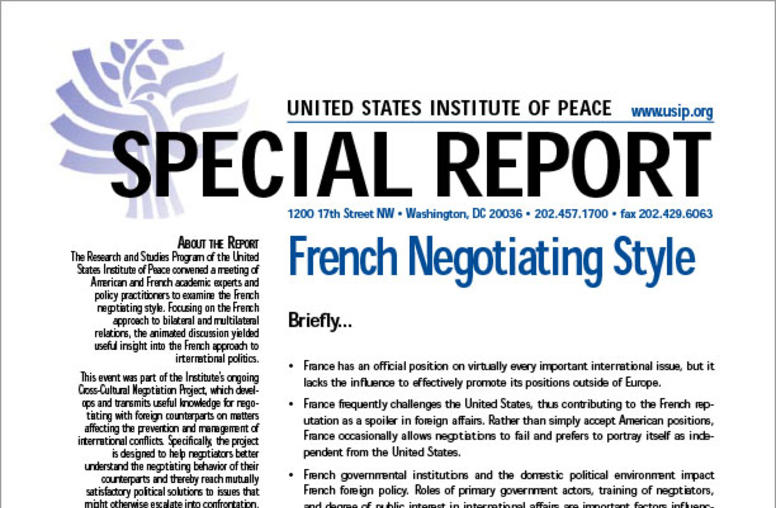
French Negotiating Style
The Research and Studies Program of the United States Institute of Peace convened a meeting of American and French academic experts and policy practitioners to examine the French negotiating style. Focusing on the French approach to bilateral and multilateral relations, the animated discussion yielded useful insight into the French approach to international politics.
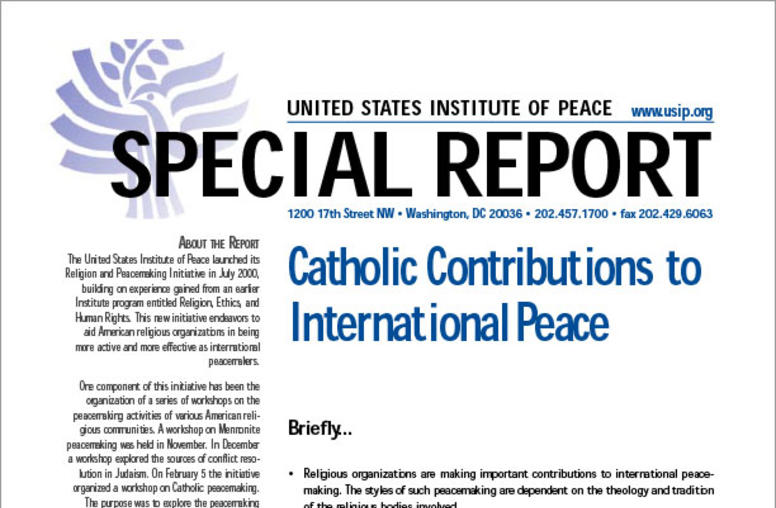
Catholic Contributions to International Peace
The United States Institute of Peace launched its Religion and Peacemaking Initiative in July 2000, building on experience gained from an earlier Institute program entitled Religion, Ethics, and Human Rights. This new initiative endeavors to aid American religious organizations in being more active and more effective as international peacemakers.